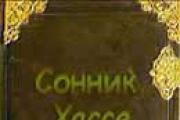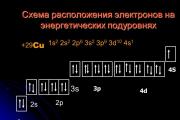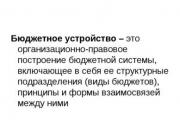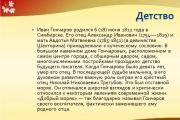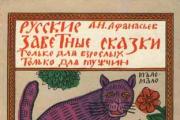Application of the rule of the Russian language hyphen. Spelling of applications and punctuation with them. Apps that represent people's nicknames
The topic of this lesson is “Spelling applications and punctuation with them.” During the lesson, cases of isolating applications using a comma and using a dash are considered.
Topic: Secondary members of a sentence
Lesson: Spelling and punctuation of applications
Application- This is a definition that is expressed by a noun. The application characterizes the object in a new way, gives it a different name or indicates the degree of relationship, nationality, rank, profession, etc. The application is always used in the same case as the noun to which it refers.
Volodya (named after), seventeen year old boy(named after), sat in the gazebo (according to A. Chekhov).
Applications consisting of one word are called uncommon(single), and consisting of several words - common. In the example we gave, the application is common.
In non-common applications
|
a hyphen is written if |
no hyphen is written |
|
These are scientific terms: butterfly- cabbage butterfly cancer- hermit; |
In common nouns, the generic concept follows the specific one: tree birch, flower chamomile; |
|
after the person’s own name, if this name has merged with the word being defined into one whole: Ivan- prince; |
the first elements in the phrase are the words comrade, master: citizen, our brother (=me and others like me) citizen policeman, our brother student; |
|
This is the name of the specialties: doctor- therapist, scientist- philologist; |
The first noun can be replaced with an adjective: coward hare - cowardly hare; |
|
application - proper name: Astrakhan-city; |
a proper name comes after a common noun: river Moscow. |
|
indicates age, nationality, relationship: soldier- Ukrainian, grandmother- Czekh. |
Applications can be not isolated And isolated.
Uncommon applications related to proper names are not isolated if they are in front of the noun being defined: She came running from the young ladies’ rooms in response to the noise housemaid Dunyasha (A. Kuprin).
Common Applications
|
separated by commas |
|
|
standing after the determined words - noun or pronoun; |
I remembered the little girl , niece Spirki (V. Shukshin). |
|
standing before the one being defined in a word, common applications are separated by commas if they have, in addition to a definitive meaning, also an adverbial connotation; |
Kind and responsive Human, the new teacher quickly won the respect and love of the students. |
|
if they refer to personal pronouns. |
Tradesman by origin, learned to read and write in a monastery cell , he, of course, did not read the “secular” books that were in our library. |
|
dash |
|
|
if the application repeats the same word as the one being defined; |
But it [fear] appeared in a new form — in the form of a sad, expectant, persistent fear(M. Gorky). |
|
if the application is at the end of the sentence; |
Finally the mechanic showed up — young boy, who has not yet taken off his institute badge (V. Rasputin). |
|
if the application is widespread enough; |
Fiction writer Beskudnikov — quiet, decently dressed Human with attentive and at the same time elusive eyes — took out his watch (M. Bulgakov). |
|
if the application has the meaning of clarification or explanation; |
Ryazantsev and Zoya — his wife— were from the same class (S. Zalygin). |
Pay attention to more complex cases of isolation.
|
Application dashes expressed by proper names and related to common nouns are separated (they have a clarifying nature and are located after the words being defined); |
To his wife - Alevtina— I didn’t really want to go to the village in the summer (V. Shukshin). |
|
Uncommon applications expressed by common nouns and standing after the defined word that already has definitions are separated by commas; |
This man with a bag on his shoulder , soldier, stopped (L. Tolstoy). And the enemies , fools, they think that we are afraid of death (A. Fadeev). Wed. And the enemies - fools think... |
|
applications that have words attached to them are separated by commas ( by name,by last name,by nickname,by origin,originally from etc.), as well as unions How(if complicated by causal meaning) and or(with explanatory meaning). |
Uncle Nikolai Uspensky had a son - high school student, named Gleb (K. Chukovsky). He , How engineer, must be a construction manager (being an engineer, must lead) - application. |
Applications are separated by a single dash:
(the second dash is absorbed by another character or omitted):
|
if the application refers to one of the homogeneous members of the sentence: |
A mechanic and a tractor driver spoke at the meeting — my Brother, agronomist and rural teacher. |
|
in the presence of a number of homogeneous applications standing in front of the word being defined: |
Contemporary Leo Tolstoy, Chekhov and Gorky, N. Roerich and Rachmaninov, passionate and even biased witness turbulent revolutionary events in Russia — Bunin often argued with history, with the century, with his contemporaries. |
|
if the application refers to a number of homogeneous defined words; |
Poets, prose writers and playwrights came to Mikhailovskoye for the Pushkin holiday — Muscovites. |
|
if, according to the context, there is a comma after the application; |
Walking along your carriage — our temporary dwellings, We saw a familiar face in the window (the dash is absorbed by the comma separating the adverbial phrase). |
|
if the application has a more specific meaning compared to the meaning of the word being defined: |
Source of strength from mother — native land seems to be an important and healing source for everyone (the second dash is omitted). |
In special cases, applications, common and non-common, can be separated dot(when dismembering the sentence): The house modestly closed its eyes and dutifully sank into the ground between the blind ends of two panel structures. A landmark, a milestone, a childhood memory and a kind shelter for people(V. Astafiev).
When combining applications, a combination of characters is possible ( commas and dashes): At night, the dog, nicknamed Funtik, - small red dachshund (K. Paustovsky).
1. Textbook: Russian language: textbook for 8th grade. general education institutions / T.A. Ladyzhenskaya, M.T. Baranov, L.A. Trostentsova and others - M.: Education, OJSC "Moscow Textbooks", 2008.
3. Complete academic reference book edited by V.V. Lopatina ().
5. Unified collection of digital educational resources ().
1. Place punctuation marks:
In “The Last Term” the old woman Anna left us like this in “Farewell to Matera” Matera island on the Angara River (S. Zalygin).
Finally, the mechanic, a young guy who had not yet taken off his institute badge (V. Rasputin), appeared.
The smell of rain is gentle and at the same time the pungent smell of moisture from damp garden paths (K. Paustovsky).
There she is, a predator of the underwater world splashing on the spring ice (V. Astafiev).
They are mother and both daughters were at home (A. Chekhov).
They are very different, these lines are opposed to each other (S. Zalygin).
How firm and affectionate she was, this short, rather plump woman (S. Zalygin).
2. Run the Application Isolation tests ().
1. Separates common an application expressed by a common noun with dependent words and relating to a common noun (usually such an application comes after the word being defined, less often - in front of it): The old woman, Trishka’s mother, died, but the old people, father and father-in-law, were still alive (S.-Shch); Good-natured old man, hospital guard,immediately let him in(L. T.); Heir to brilliant nobility and crude plebeism, bourgeois combined the most severe shortcomings of both, losing their advantages(Hertz.); Giants of centuries gone by, guardians of the legends of glory, there are Cossack mounds (Surk.).
Designs of the following types are also distinguished: The director of the film spokehe is also the performer of one of the roles, Eldar Ryazanov (Gaz.).
2. A single (uncommon) application is isolated, standing after a common noun, if the word being defined has an explanation:He stopped his horse, raised his head and saw his correspondent, deacon (T.); She looked after me one girl, Polish (M. G.).
With a single noun, the uncommon application is isolated in order to strengthen its semantic role, to prevent it from intonationally merging with the word being defined: Father, drunkard, fed herself from an early age(M.G.); Girl, smart I immediately guessed where the book was hidden.
Notes: 1. A single clause is usually attached to a common noun by means of a hyphen: hero city; mortar guards; teenage girls; winter-sorceress; design engineer; innovative workers; frost-voivode; deceased father(but: father archpriest); gentlemen-gentry (but: pan hetman); bomber aircraft; neighbor-musician; old watchman(but: old watchman); excellent student(But: excellent students...- heterogeneous applications; see § 11, paragraph 2) , biologist; French teacher.
2. It is possible to add a hyphen to the application if there is an explanatory word (definition), which in meaning may refer to:
1) to the whole combination: famous experimenter-inventor; a dexterous acrobat-juggler;
2) only to the word being defined: demobilized missile officer; original self-taught artist; my neighbor is a teacher;
3) only to the application: female doctor with extensive experience.
In these cases, double punctuation is usually possible; compare: The lecture will be given by a famousprofessor-chemist.— The lecture will be given by a famous professor, chemist.
3. A hyphen is written after a proper name (most often a geographical name, which acts as an appendix for a generic name): Moscow River, Ilmen Lake, Kazbek Mountain, Astrakhan City(but with reverse word order: Moscow River, Lake Ilmen, Mount Kazbek, Astrakhan city; expressions like Mother Rus', Mother Earth have the character of stable combinations).
After a person’s own name, a hyphen is placed only if the defined noun and the appendix are merged into one complex intonation-semantic whole: Ivan the Tsarevich, Ivanushka the Fool, Anika the Warrior, Dumas the Father, Rockefeller Sr.(but: Cato the Elder is the nickname of a historical figure, Marcus Porcius Cato the Younger, or Uticus- translation of the nickname from Latin).
4. The hyphen is not written:
1) if the preceding one-word application can be equated in meaning to an adjective definition: handsome man(cf.: handsome man), old father, giant plant(but: giant plant) , a poor shoemaker, a strong horseman, a little orphan, a predatory wolf, a skilled cook.
It should be noted, however, that the noun application may differ in meaning from the adjective attribute; yes, in a sentence Tatyana, at the behest of the lady, was married to a drunken shoemaker(T.) combination drunkard shoemaker(constant sign) not the same as drunk shoemaker(temporary sign);
2) if in a combination of two common nouns the first denotes a generic concept, and the second - a specific concept: chrysanthemum flower, eucalyptus tree, boletus mushroom, finch bird, cockatoo parrot, macaque monkey, silver paint, carbon gas, floss threads, nylon fabric, montpensier lollipops, kharcho soup.
But if such a combination forms a complex scientific term (the second part does not always serve as an independent specific designation), the name of a specialty, etc., then the hyphen is written: brown hare, lyre bird, goshawk, stag beetle, rhinoceros beetle, swimming beetle, mantis crab, hermit crab, vole mouse, cabbage butterfly, therapist, tool maker, teacher mathematician, organic chemist, landscape artist, Dominican monk;
3) if the defined noun or application is itself written with a hyphen: female doctors, surgeons, civil engineer, designer, boiler fitter, mechanical designer, Volga Mother River, hero fighter pilot.
But in some terms there are two hyphens: captain-lieutenant engineer, rear admiral engineer;
4) if with the defined noun there are two uncommon applications connected by a conjunction and: students of philology and journalists; Conservative and Liberal MPs; the same if two qualified nouns have a common application: students and graduate students of philology.
In terminological combinations, the so-called hanging hyphen is used in these cases: agronomists and cotton growers(i.e. agronomists-cotton growers and cotton growers; application is the second component of a compound noun, a hyphen is written after the first component); mechanical engineer, metallurgist, electrician(common component is the first part of the addition, the hyphen is written before the second part);
5) if the first element of the combination is words citizen, sir, our brother, your brother, comrade(in the meanings ‘I and those like me’, ‘you and those like you’): citizen judge, Mr. Envoy, our brother student.
5. The application after it is separated proper name:The coachman brought in the suitcase Selifan, a short man in a sheepskin coat, and footman Petrushka, a guy of about thirty in a second-hand frock coat(G.); Sergey Nikanorych, bartender, poured five glasses of tea(Ch.); A rootless man Markusha, janitor, sitting on the floor, whittling sticks and slats for bird cages(M.G.).
The application preceding the proper name is isolated only if it has an additional circumstantial meaning: Stubborn in everything, Ilya Matveevich remained stubborn in his studies(Koch.) - cf.: Being stubborn in everything...(with causal meaning); Famous scout Travkin remained the same quiet and modest young man as he was when they first met(Kaz.) - cf.: Although he was a famous intelligence officer...(with a concessional meaning).
But without additional adverbial meaning: Lieutenant of the Tsar's army Vasily Danilovich Dibich made his way from German captivity to his homeland(Fed.).
6. The proper name of a person or the name of an animal acts as a separate application if it explains or clarifies a common noun (before such an application you can insert the words without changing the meaningnamely, that is, and his name is): Daughter Daria Mikhailovna,Natalya Alekseevna,I might not like it at first glance(T.); My father, Klim Torsuev, a famous soap maker, was a man of difficult character(J. G.); And Ani’s brothers, Petya and Andryusha, schoolchildren, pulled their father's tailcoat from behind(Ch.); Fourth son still just a boy Vasya (Paust.); At the door, in the sun, his beloved greyhound lay with his eyes closed. Father's dog, Milka (L.T.) [see. § 23, paragraph 1].
Note. In many cases, double punctuation is possible, depending on the presence/absence of an explanatory connotation of meaning and the corresponding intonation when reading. Wed:
Only one Cossack Maxim Golodukha,escaped from the Tatar hands on the way(G.); Elizaveta Alekseevna went to visit to my brother Arkady Alekseevich; He reminded my son, Borka (there is only one brother, one son; if there were several, then when expressing the same thought one’s own name should not be isolated);
Her sister Maria came in; Today my friend Seryozha and I we are leaving for the south; Speaker group leader Kolya Petrov; On the way we met the chief engineer Zhukov.
7. A separate application can be joined by the union like (with an additional meaning of causality), as well as by the words by name, by surname, by nickname, by birth etc. (regardless of what part of speech the word being defined is expressed): Ilyusha sometimes, like a frisky boy,I just want to rush in and redo everything myself(Gonch.); Like an old artilleryman,I despise this kind of cold decoration(Sh.); Leontyev got carried away by this thought, butlike a careful personI haven't told anyone about it yet(Paust.); This student named Mikhalevich,enthusiast and poet, sincerely fell in love with Lavretsky(T.); ...Little dark one lieutenant, named Zhuk, led the battalion to the backyards of that street(Sim.); Yermolai had a cop dog, nicknamed Valetka(T.); Master, originally a Yaik Cossack,seemed to be a man of about sixty(P.).
But (without the intonation of isolation): He got himself a bear cub named Yasha (Paust.); A doctor was invited by the surname Medvedev.
Note. If the conjunction as has the meaning ‘in quality’, then the turnover it joins is not isolated: The answer received is being considered as consent (Azh.) [see. § 42, paragraph 4].
The application with the conjunction as, which characterizes the subject from any one side, is not isolated either: The reading public has managed to get used to Chekhov as a humorist (Fed.).
8. The application is always isolated with a personal pronoun: Should he, the dwarf, compete with a giant?(P.); A doctrinaire and somewhat pedantic, He loved to instruct(Hertz.); To me , as a high-ranking person,it is not proper to ride a horse-drawn horse(Ch.); Just yesterday the fugitives; They today they became exiles(Fed.); Here it is, the explanation (L.T.).
Depending on the nature of the intonation, the presence/absence of a pause after the 3rd person pronoun (in the demonstrative function) with a preceding particle, double punctuation is possible; compare:
Here they are, a hare's dreams! (S.‑Sh.); Here they are, the workers! (Triple);
Here she is reality(S.-K); This is pride (Humpback); Here it is triumph of virtue and truth(Ch.).
When following a demonstrative particle with a pronoun, a comma is not placed after the noun: Spring is here, in the yard (Pol.).
9. The application that relates to missing word in a given sentence, if this word is suggested by the context:You hold him, hold him, otherwise he will leave, anathema (Ch.; meaning burbot); "The madman is buried."- “Ah-ah! He’s also outlived his time, my dear” (Fed.); That's how it should be. Next time, let him not be fiscal, canalya (Kupr.). The missing pronoun can be suggested by the personal form of the predicate verb: Never, sinner, I don’t drink, but if something like this happens I’ll drink(Ch.). [Cm. also § 18, paragraph 7.]
10. When separating applications, a dash is used instead of a comma:
1) if you can insert words before the application, namely (without changing the meaning): In the far corner there was a yellow light spot - fire of Serafima's apartment(J. G.); She sketched ancient lamps with coat of arms of the city of Olbia - an eagle soaring over dolphins(Paust.); On Nechaev's dry face, with a soft boyish forehead, remained footprints burns - two whitenon-tanning spots(N. Chuk.);
2) before a common or single application at the end of a sentence, if the independence of the application is emphasized or an explanation is given: I don't like it too much tree - aspen (T.); In the corner of the living room stood a pot-bellied the Bureau on the most ridiculous four legs— perfect bear(G.); My path went past Berdskaya settlements - refuge of Pugachevsky(P.); We drove around some old dam, drowned in nettles, and a long-dried pond - deep ravine overgrown with weeds(Boon.); In the storage sheds gaped in two rows wide round pits - wooden vats dug deep into the ground(M.G.); His bike helped him out - the only wealth accumulated in the last three years of work(Fel); Only lived at the lighthouse watchman - old deaf Swede(Paust.); It was a wonderful April day - best time in the Arctic(Hump.); The first thing she did was go to the loan office and pawn ring with turquoise - your only treasure(Ch.); Martian soil contains hydrogen peroxide is a poison for living things; Each Olympics not only names champions, but also nominates athletes heroes - right-wing world sports(Gas.);
3) to highlight (on both sides) an application that is explanatory in nature: Somewhat unnatural greenery - the creation of boring incessant rains— covering the fields and fields with a liquid network(G.); Mild cramps - a sign of strong feeling— ran across his wide lips(T.); The caretaker of the night shelter - retired soldier from Skobelev's times— followed the owner(Fed.); Memory of Avicenna - outstanding scientist-encyclopedist, fighter for reason and progress— road for all mankind(Gas.); They caught fish with nonsense - small seine— yes with trap-tops; Got it depth gauge - weight on a long string— and measured the depth; He is disabled - continued to work and help others.
Note. One dash (first or second) is omitted:
1) if, according to the conditions of the context, a comma is placed after a separate application: If he had involved his device - scales, then I would understand the source of the error; Using a special device for human breathing under water- scuba gear, you can dive to a depth of tens of meters; Among the actors of Sergei Eisenstein's traveling troupe were young men , who later became famous film directors,— Grigory Alexandrov, Ivan Pyryev,as well as actor Maxim Shtraukh(Gas.);
2) if the application expresses a specific meaning, and the preceding defined word has a general or figurative meaning: On meeting of foreign ministers countries - members of the Organization of American StatesCuban Foreign Minister spoke(Gas.); The first swallows have arrived here - our athletes to participate in sailing races; Higher reward French Institute of Oceanography for outstanding oceanographic work— Medal in memory of Albert I Prince of Monacoawarded to the prominent scientist L. A. Zenkevich(Gas.);
3) if the application comes before the word being defined: One of the outsiders of the national championship- athletes Fili club won their third victory in a row(Gas.); Herald of the forests - cuckoo notified everyone about the event;
4) for clarity, if the application refers to one of the homogeneous members of the proposal: Magnolias were bred in the greenhouse, camellias - flowers of Japan, orchids and cyclamens; The mistress of the house and her were sitting at the table. sister - my wife's friendtwo strangers to me, my wife and I; I started talking about conditions, about inequality, about people - victims of life and about people - its rulers (M. G.).
However, if a double interpretation of the phrase is possible, a second dash is also added: The designer worked on the project, engineer - communications specialist- and a radio operator (in the absence of the second dash, it turns out that the engineer was also a radio operator);
5) when separating homogeneous applications preceding the defined word from the defined word: Our greatest poet, the founder of the Russian literary language, the largest representative of national literature— Pushkin rightfully occupies one of the first places in the history of cultural development of Russia(when reading, a pause is made after homogeneous applications);
6) if the application explains another application: All of us, educators - teachers - and parents - must take into account age characteristics when communicating with children;
7) if the application refers to two or more preceding nouns and, when reading, is separated from them by a pause: The delegation arrived poets, prose writers and playwrights - Muscovites (in the absence of a pause, the dash can be omitted; see above, paragraph 4);
8) if the application is widely distributed and has commas inside it: Comprehensive study of Georgian folk architecture - multifaceted art, formed under the influence of unique natural conditions, bearing the stamp of various eras and economic formations with their social contradictions,— will help to identify the best, progressive features of folk art(Gas) [cf. above, paragraph 10];
9) in designs like: Ernani - Gorev bad as a shoemaker(Ch.); Chatsky - Kachalovwas inimitable.
The separation of applications, as well as definitions, depends on several factors:
a) from the part of speech of the defined (main) word;
b) from the position of the application in relation to the defined (main) word - before the main word, after the main word;
c) from the presence of additional shades of meaning in the application (adverbial, explanatory);
d) on the degree of distribution and method of expression of the application.
Conditions for segregating applications
A) The word being defined is a pronoun
Any application with a personal pronoun is isolated:
Is it him? dwarf, compete with a giant?(Pushkin); Here it, explanation (L. Tolstoy).
B) The word being defined is a noun
1. An application relating to a proper name is isolated if it appears after the word being defined:
Sergey Nikanorych, bartender, poured five glasses of tea(Chekhov).
Before a proper name, the application is isolated only if it has an additional adverbial meaning. Such an application can be replaced by a subordinate clause with conjunctions since, although etc.
For example:
1. Stubborn in everything, Ilya Matveevich remained stubborn in his studies(Kochetov). - Since Ilya Matveevich was stubborn in everything, he remained stubborn in his studies.
2. Renowned Scout, Travkin remained the same quiet and modest young man as he was when they first met(Kazakevich). - Although Travkin was a famous intelligence officer, he remained the same quiet and modest young man as he was when they first met.
2. An appendix - a proper name (the name of a person or the name of an animal) with a defined word - a common noun is isolated if such an appendix comes after the defined word and has an explanatory meaning (you can put the words in front of it namely, that is, and his name is):
aunt, Ksenia Frolovna Gorina (Peskov). - Lyubina occasionally inserts a word into the conversation. aunt, and her name is Ksenia Frolovna Gorina.
Note. In many cases, double punctuation is possible, depending on the presence or absence of an explanatory connotation of meaning and the corresponding intonation when reading.
Wed: One of my friends, Seryozha, decided to go to university(explains which friend decided to go to university). - My Seryozha's friend decided to go to university(there is no such explanation in this context, and it is the proper name that is in this case the defined word, and the common noun is the appendix).
3. A common application expressed by a common noun with dependent words, or several homogeneous applications with a defined word - a common noun is usually isolated regardless of the position - before or after the defined word. However, most often such an application comes after a noun.
For example:
1. Old woman, Grishka's mother, died, but old people, father and father-in-law, were still alive(Saltykov-Shchedrin).
2. Misfortune's faithful sister, hope in a gloomy dungeon will awaken cheerfulness and fun(Pushkin).
4. A single application - a common noun with a defined word - a common noun is isolated only when:
- the application comes after the word being defined;
- The defined noun has explanatory words with it.
Isolation of a single application - a common noun from a single defined word - a common noun is possible only if the author wants to strengthen the semantic role of the application, to prevent it from merging intonationally with the word being defined:
Father, drunkard, fed from an early age, and herself(M. Gorky).
5. An application with a conjunction, as usual, has the additional meaning of causality (can be replaced by a subordinate clause of cause with conjunctions since, because, since or a turn of phrase being) and is separated:
Like an old artilleryman, I despise this type of edged weapon(Sholokhov). - Being an old artilleryman, I despise this type of edged weapon; I despise this kind of bladed weapon, because I'm an old artilleryman.
If a phrase with the conjunction as has the meaning “as”, then the attached phrase is not isolated:
The received response is considered as consent. - The received response is considered as consent.
6. Applications with words by name, by surname, by nickname, by birth etc. are isolated if pronounced with the intonation of isolation.
Wed: Yermolai had a cop dog, nicknamed Valetka (Turgenev). - The class teacher, nicknamed Trumpet no one loved(Trifonov).
Note!
Instead of a comma when separating applications, a dash can be used in the following cases:
1) if before the application you can insert namely without changing the meaning (especially if the application is at the end of the sentence, has dependent words and there are already punctuation marks inside it).
In the far corner there was a yellow glow spot - fire in the window of Serafima's apartment, attached to the wall of the stable (M. Gorky);
2) if a single or widespread application is at the end of the sentence and its independence is emphasized or an explanation of such an application is given.
I don't like it too much tree - aspen (Turgenev); In the corner of the living room stood a pot-bellied bureau on absurd four legs - perfect bear (Gogol);
3) if the application is in the middle of a sentence and is explanatory in nature (a dash is placed on both sides).
Somewhat unnatural greenery - the creation of boring incessant rains- covering fields and fields with a liquid network(Gogol).
Note. The second dash is omitted:
a) if a comma is placed after a separate application, for example: Using a special device - pedometer, I calculated the optimal load for my body(Vasiliev);
b) if the application expresses a more specific meaning, and the preceding qualified word expresses a more general meaning, for example: At the meeting ministers of foreign affairs - members of the G8 Russian Foreign Minister spoke;
c) if the application precedes the word being defined, for example: One of the outsiders Russian Football Championship- team Saratova unexpectedly won two games in a row.

